Ask an Attorney a Question for FREE!
Total Loss Process
Part II
The total loss process begins when the adjuster is convinced that the cost to repair your car is at least 70, 80, or 90% of the fair market value of your car.
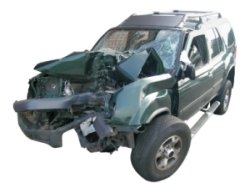
Although every state and insurance company vary on how they determine a total loss, it is generally accepted that if the value to repair reaches 80%, the vehicle will be deemed a total loss.
For an adjuster to be able to determine whether a car is a total loss or not, he will first have to obtain a preliminary value of the car.
Adjusters usually call you and tell you that your car is or will be totaled. They do this so they can cut your rental car early. However, if you ask them, “How much do you think my vehicle is worth?” they will probably tell you that they are not sure. They might tell that they have yet to find comparable values to determine your value.
If that is their answer, then they are lying to you. They have a very strong indication of how much your car is worth. A total loss adjuster knows the value of the car. If they do not, then how can they determine that the amount to repair the car reached 80% of its value?
They do not want to disclose this “value” as they need documentation to show you that this is a fair offer, and it is the most they will pay. The insurance company already has a “preconceived” knowledge of how much they will offer. They just need to find the numbers to support it.
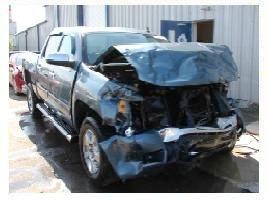
Every state requires that insurance companies do an evaluation of the fair market value of the car. However, Fair Market Value is a vague concept when pertaining to total losses. Fair market value (in this context) is the amount the insurance company can depreciate your vehicle to as compared to what the vehicle was worth prior to the collision.
In essence, they will be buying your car as if it was not wrecked. The question for you then is - how much would you sell your car for if it was not in an accident? Get that price on your mind and try to find your own comps before even attempting to settle.
Remember that NADA and Kelly Blue Book will not give you reliable information as they are national directories and are subjective numbers. You must look at your local values.
Make sure the insurance company is using only local values. Most insurance companies use third party companies to evaluate the value of vehicles. They do this to eliminate the presumption that they are evaluating vehicles too low so they can settle for less.
The leading third party company that does this type of thing is CCC Information Services Group, Inc. This company will supposedly do a search for vehicles similar to yours in your area (by postal code). They will submit this information to the insurance company so the insurance company can make an offer.
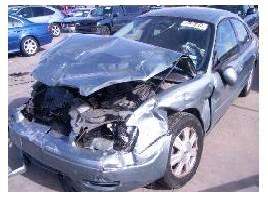
How fair do you think those comps are? Let me tell you that CCC is under investigation. There have been several class action lawsuits against that company and the insurance carriers that use it (fortune 500 ones). The most recent class action lawsuit has to do with CCC and Allstate Insurance Company.
My point is that if your insurance company uses a third party company to evaluate total losses, you must be very aware. This is truly where the total loss process becomes unfair and dirty.
Watch out! How do you watch out? How do you ensure the insurance company is not taking advantage of the process and will not leave you with a low settlement? Read every document with a magnifying glass. Request to see the comps and reports the insurance company is using to see evaluate your car. They must disclose them to you (NOT OPTIONAL). Review everything closely.
Check the location of the vehicles and see if they are in your local market. If a comp is not in your local market (not within 50 miles), you should tell the insurance company that they should not take this particular comp into account.
You can also find a comp outside your 50 miles radius with a high value, and then tell them that if they include the comp outside your local market, they should also include the one you have. Remember to make sure the insurance company is within your local market.
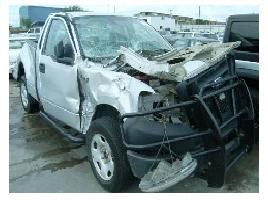
If not, ask them to give you reimbursement for the time, gas, and mileage you spent to find a vehicle in that area. They will drop the comp instead. I have seen CCC reports for total losses in Washington State trying to use comps in Florida. You cannot go much farther than that before you get to Central America.
Make sure the total loss process is fair and that you are not getting the runaround with these old techniques. Also, make sure that all your vehicle options are accounted for - stereo system, alarm, rims, keyless entry, automatic transmission, power windows, etc.
If they are not accounted for or the comps they are using do not reflect them, make sure the adjuster knows that these items added to the offer. To learn how to negotiate your total loss value and how to go “back and forward” with your offers click here.
If you find that the comps provided to you are too good to be true, or in other words, the prices for those vehicles seem to be at the low end, GO TO THE CAR LOT AND CHECK THEM OUT. I know as a fact that sometimes CCC and other third party companies just call used dealerships and ask for a value? That is not a comp.
The car must physically exist at the lot. If it doesn’t, then you can decline that particular comp value. If the car was recently sold, you can ask for evidence of that. Remember, there must be good faith and fair dealing on both parties.
If they are quoting random numbers, you need to know where those numbers came from. If the comp cannot be verified, the insurance company must throw it out.
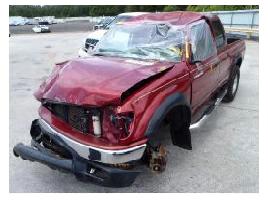
Remember, most insurance policies (yours probably does) have a clause called Right of Appraisal. In this clause you can request an independent appraisal done by a professional if you are unhappy with the offer. Insurance companies do not like to mention this because THEY have to pay for it.
It can be anywhere from $300 to $500, sometimes more. They only have to pay if they pick the appraiser. You can pay for one if you want to pick an appraiser yourself. I know this costs a lot of money, but if your total loss is in the $20,000 and up range, that might not be such a bad idea.
|
For a Free Review of Your Case
Please Call (866) 878-2432 |


